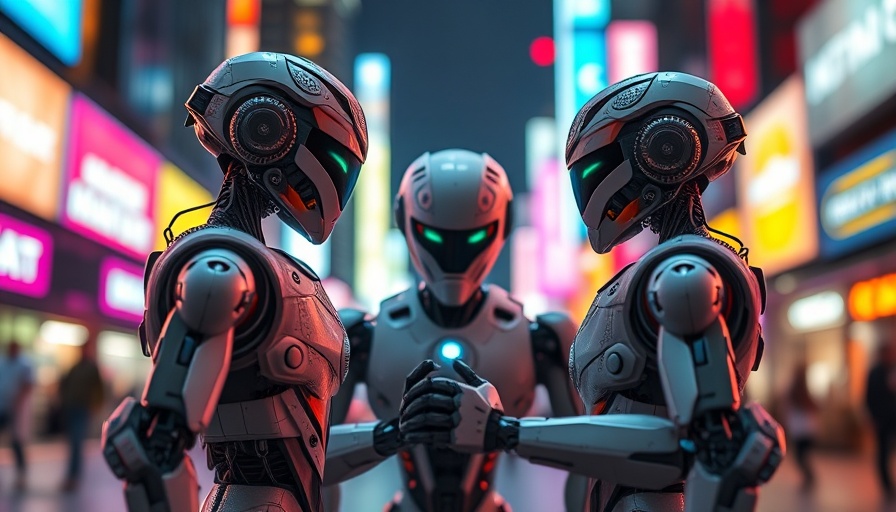
Understanding the Importance of the Updated Model Context Protocol
The Model Context Protocol (MCP) has just received a significant upgrade that epitomizes the future of AI interaction with tools and data. This open standard not only allows AI agents to communicate more effectively but also ensures a more robust framework for bypassing the current limitations of AI technology. As true interoperability among AI systems becomes increasingly crucial, this update stands as a landmark achievement.
Enhancing Security and Efficiency with OAuth 2.1
A key feature of the MCP update includes the adoption of the OAuth 2.1-based authorization framework. This addition enhances the security of agent-server communication through clearly defined access and permissions. Consequently, this means safer, more reliable interactions that are particularly pertinent in today’s digital landscape where security breaches are commonplace.
Real-Time Communication: The Streamable HTTP Transport
Another significant upgrade is the implementation of Streamable HTTP Transport, which replaces the older setup. This allows for real-time, bidirectional data flow between AI agents and their tools, fostering faster and more efficient communication. Users can benefit from a smoother experience, especially in applications that require immediate feedback and agile responses.
Improving AI Performance through New Features
This MCP version also introduces JSON-RPC batching, enabling multiple requests to be sent simultaneously. This change reduces latency, making interactions with tools snappier and overall more effective. Tool annotations now provide rich metadata descriptions, further enriching the capabilities of AI agents in performing complex tasks.
Collaboration with Major Players Like Microsoft
This update comes timely as popular industry players, including OpenAI and Microsoft, are showing their support for the MCP. Microsoft has released Playwright-MCP, integrating their browser automation tool with MCP standards. This synergy means AI agents can not only process information but also interact with websites as if they were human, opening a new realm of possibilities for automation and efficiency.
Looking Ahead: The Future of AI Interoperability
The MCP update marks a pivotal moment in the journey toward broader AI capabilities. The commitment from industry leaders to adopt and implement this protocol indicates a future where AI tools can collaborate seamlessly. As AI integration becomes more widespread, the need for frameworks like MCP will be integral to enable interoperability at scale, ultimately benefiting users across various sectors.
In conclusion, the updated MCP is not just an improvement; it's a transformation of how AI will function in the real world. Businesses, entrepreneurs, and tech professionals should keep a keen eye on these developments as they signify not just advancements in technology but also the future of operational efficiency in their fields.
 Add Row
Add Row  Add
Add 




Write A Comment